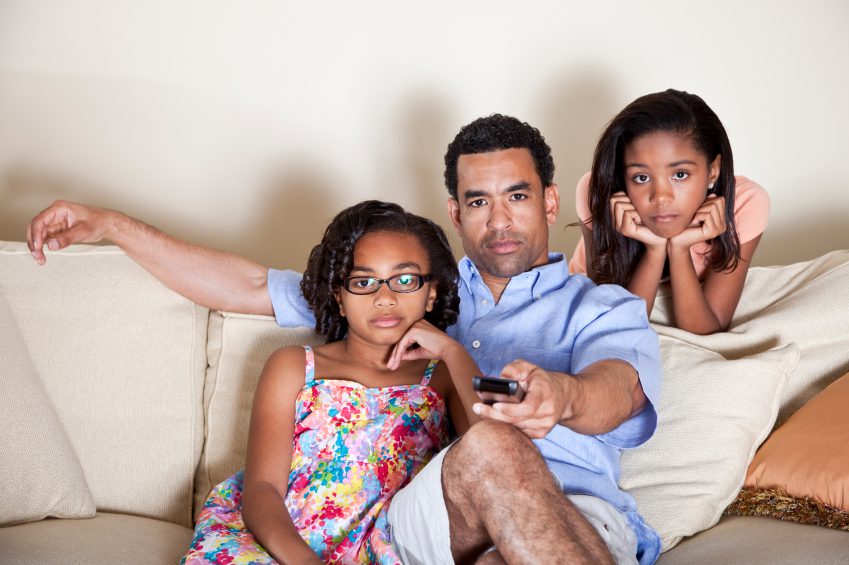Guarding Against Fake News for You and Your Child

Posted in: Grade School, Teenagers, You & Your Family, Young Adults
Topics: Child + Adolescent Development, Hot Topics
This is a good time to talk about charisma and its relationship to the power of stories.
It’s not that the idea of charisma is new. The word itself is an old one. It derives from the ancient Greek word “χάρισμα (khárisma)”, and it translates to something like “favor freely given” or “gift of grace.” The ancient Greeks used this term as a means of explaining the uncanny emotional sway that the gods of mount Olympus wielded over their lowly human subjects. Wars, after all, were fought because of the charismatic injunctions of powerful gods. Kingdoms fell and temples were built, all because of charisma.
In other words, charisma is a powerful thing. This year’s election made the power of charisma abundantly clear. Still, for all of its potency and all of its influence, charisma remains a poorly understood concept. What, after all, is our understanding of the power of charisma?
Ironically, to understand charisma, you have to forgo your susceptibility to the charms of charisma itself. And to experience charisma, you have to open your mind to the “favor freely given” that the ancient Greeks afforded their gods.
Let’s do a thought experiment. What do Ronald Reagan, Bill Clinton, Barack Obama, Dwayne “The Rock” Johnson, Janis Joplin, your high school class president, Elizabeth Warren, Idi Amin and Mahatma Gandhi all have in common? Obviously this list could go on and on, but surely you can see that this is an exceptionally varied group of highly influential people. Yet they have all been described as extremely charismatic. Of course Donald Trump is on this list too. I didn’t vote for him, but his charisma is undeniable.
The defining and unifying characteristic of charismatic individuals is their capacity to get someone else to think whatever it is that they think. This is accomplished best through the use of narrative – stories – that create, by definition, compelling explanations and well bounded dichotomies.
All of this explaining might help us to understand how a pizza parlor in Washington, DC became associated with fears that it was harboring satanic cult. I first read this story after the guy with the gun showed up for something other than pizza the other day, and to say that I was flabbergasted would be a quantum understatement. How in the world could anyone believe this story, I thought. But then I watched Alex Jones and his followers. Boy, they’re good. Sure, I thought. Makes sense. Why not?
Mix the charisma of Alex Jones with the alluring narrative of fake news, and you’re going to get some pretty ugly results. The Internet makes all this more likely, but these kinds of stories have been increasingly peddled since we combined politics and the Neilson ratings. A satanic cult in a pizza parlor wouldn’t even make the cut for the old TNT network, but it’ll work if you present it as real.
We’re a funny species.
At the end of the day, our brains love stories. This is well documented in the neuroscience literature. Staying alive is hard work. If we have to stop and question everything we think we already know, we might not see the proverbial saber tooth tiger. We therefore look to others, especially our leaders and teachers, to tell us what to think and believe. After we know what’s what, we can focus on more vital tasks, like foraging for dinner, or choosing which television program to binge watch on Netflix once we’ve collected our nightly nuts and berries.
Plus, never forget this warning: charisma has little to do with facts. Facts, however, do not preclude charisma. Charismatic persuasion happens independent of facts.
Charisma has everything to do with creating a compelling narrative, and even if the narrative isn’t true, charismatic individuals can make the narrative stick by making you want to believe. Charisma is the reason we believe in Fox Mulder from The X-Files. He wants to believe, and he’s chock full of charisma.
We’re pack animals. We’ll do just about anything to stay in the pack. If that means believing a false narrative, we’ll gladly go down that rabbit hole to have a seat at the table. That fear of being on the outside is where charisma derives virtually all of its power.
As I already mentioned, we know precious little about the science of charisma. Whether you like the way the election turned out or not, it makes sense now to pause and to dissect whether you believe what you believe as a function of charismatic retelling or as a function of an honest, unbiased review of available facts.
But this kind of dissection is getting harder and harder. Here’s why:
- You’ll believe a story if the story is good, if it is simplified, and if it is given power by charisma. That leads us to the first corollary of charisma. Not everyone will believe the same things. We all have different thresholds for the sway of a given tincture of charisma. That means that charisma necessarily selects groups who belong together by virtue of commonly held beliefs and groups who do not belong with those who do belong by refusing to hold these same commonly held beliefs.
- Taken to its extreme, this us/them split is like a bull in the china closet of civility. History is littered with examples of unhinged, charismatic, dichotomous violence. How many times have we heard “if you are not with us, you’re against us”?
- The enemy of charisma is in fact the middle ground. Ironically, this is also an idea that the ancient Greeks gave us. Icarus was advised to “fly the middle course.” The Oracles at Delphi advised that we do nothing in excess. Aristotle called this “The Golden Mean.” It’s a fascinating tenet of human experience that we seem equally eager to celebrate the powers of charismatically created categories as we are the powers of compromise. These two forces are forever in opposition, and any student of history knows that the pendulum dangerously swings.
At the end of the day, we ought to figure out how to teach our kids (and ourselves) to distinguish real news from fake news. That means we have to do our best to take the charismatic telling of the news out of the picture. As I mentioned, that goes against our very nature. We love a good story, and we love it that much more if we want to believe it. That’s actually part of the trick to recognizing the possibility of news being fake in the first place. If a news story is so wonderfully compelling that it would be just totally awesome if it were true, then that news story, especially in this day and age, require further research.
Here are some questions you can ask your children when they come to you with information learned on the internet:
- Where’d you learn that?
- Did you look for the same information at other Internet sites?
- Do you want this story to be true? What if the story is not true?
MOST IMPORTANTLY –
- Can we research this story together?
We can’t teach our kids everything, but we can teach them moderation and careful thinking. With those tools, they can navigate this new world on their own as they get older. That is, after all, our job as parents – to teach our kids how not to need our help.
A version of this post originally appeared and was written by the author (Schlozman) Medium.


 Share
Share Tweet
Tweet





